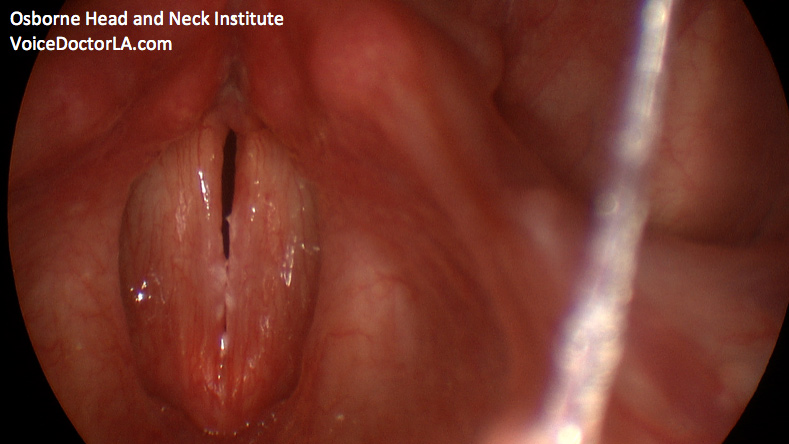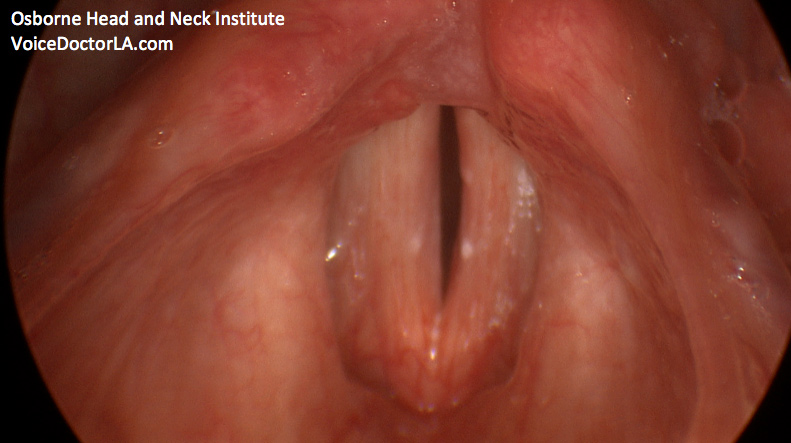- Question: How do the ingredients in e-cigarettes and vaporizers affect respiratory health? - August 16, 2019
- Bad Technique and Vocal Injury - January 9, 2019
- Is Edible Marijuana Dangerous for the Voice? Myths Dispelled - December 18, 2018
- Surprise! You have a hemorrhage - January 31, 2018
- Graves’ Disease: Treatment Overview - September 25, 2017
- Adele and the Stigma of Vocal Injury - July 11, 2017
- Vocal Curbside Consult: How does the thyroid affect the voice? - May 16, 2017
- Vocal Curbside Consult: How do hormones affect the voice? - May 3, 2017
- Vocal Curbside Consult: How do emotion and stress affect the voice? - April 17, 2017
- Vocal Curbside Consult: Vocal Recovery After Illness - April 7, 2017
The patient is a 26 year old male who presented with a 3 week history of hoarseness. He denied any other symptoms, including throat pain, postnasal drip, or throat clearing. He also denied feeling unwell. The patient noted no precipitating events around the time of onset. He is a professional singer and was particularly concerned because he had a gig coming up in 1 week and was unsure of how he would do.
A thorough examination was performed, including videostroboscopy. This is presented here:

This exam shows significant laryngitis. There is marked redness of the entire larynx and there is significant prominence of vocal fold vessels. Vibration is significantly diminished in both vocal folds.
Based on the examination, it was evident that there was a source of significant inflammation. One of the most common errors in cases of laryngitis is to not investigate the source. Physicians often simply say the larynx looks swollen and use a temporizing measure such as steroids to alleviate the symptoms. However, if the underlying cause is not identified and treated, the laryngitis will simply recur.
At this point, the patient and I discussed at length the possible sources of his laryngitis. After some time, we finally were able to correlate the onset of his symptoms with his birthday several weeks earlier. He recalled consuming significant amounts of alcohol on that day. He recalled getting ill and vomiting once as well. No other causative issues were identified. Treatment was tailored to this specific etiology.
Within 1 week of treatment, the patient was feeling significantly better. His laryngeal exam is as follows:

There is significant reduction in the hypervascularity as well as improvement in the mucosal wave. This case highlights the critical nature of using patient history to correctly identify the cause of a patient’s problem. Patients often get trapped in a cycle of treatment, subsequent improvement, and recurrence. Worsening or recurrence of the patient’s original issue typically occurs when treatment has run its course. In order to break this cycle, diagnosis must be refined and treatment tailored to a precise problem must be instituted.
To learn more about Dr. Reena Gupta or voice evaluation and treatment, please visit www.voicedoctorla.com.



